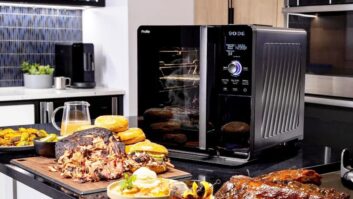Milt Rosenberg isn’t one to rest on his laurels.
The president of Bernie’s, now the leading independent CE, majap and furniture dealer in New England, poignantly recalls when the chain nearly disappeared from the retail landscape. And he’s determined to never let that happen again.
The near calamity occurred in 1991 after New York metro area independent Newmark & Lewis, which had acquired the Connecticut company six years prior, went belly up. Rosenberg bought back the name of the business that his father Bernie started in a gas station in 1947, and, beginning with two locations, built it into a 13-store, $140 million powerhouse.
But the work wasn’t over for Rosenberg.
“I saw how a big company could go bad,” he said of Newmark & Lewis. “There was no succession planning, no continuity, and they lost their way — they forgot that the customer’s the boss.”
So he set out to lay the foundation for future growth and prosperity at a post-Rosenberg Bernie’s with a strategic plan that will take it to 20 stores by 2009. He began by shoring up his management ranks, choosing as his chief lieutenant John Wilkerson, a veteran of Tops Appliance and The Wiz, who now serves as executive VP/COO. The process continued as recently as this month, when former Ultimate Electronics’ chief merchant Steve Wood joined the team as merchandising and marketing VP.
He next turned his attention to re-energizing and incentivizing his 362 employees, and “getting back to core values.” A cornerstone of that effort is the company’s new employee stock ownership plan (ESOP), through which Rosenberg transferred 30 percent of Bernie’s’ value to the rank and file. Aside from certain tax advantages, the ESOP instills staffers with a sense of ownership in the business, and “ownership inspires outperformance,” he explained.
Besides the ESOP, Bernie’s maintains a mentoring program to develop management from within, which aids succession planning and encourages employees to cast their careers with the company. “We have a commissioned sales force, so you can make good money through sales, plus own a piece of the pie,” Rosenberg said.
The staff is also “empowered to take care of the customer,” who remains the ultimate boss. “Management works for the stores, and the stores work for the customers,” he stressed. Indeed, floor personnel are taught to live by the “Rule of Twenty,” which means that a customer must be greeted within 20 seconds of entering a store. Customer service also extends through the post-sale, where the company makes 97.5 percent of its 80,000 annual next-day deliveries within a four-hour window (a two-hour window, by appointment, is planned), and follows up with phone calls and comment cards.
Bernie’s is in fact built around a home delivery and installation model, and derives fully 75 percent of its revenue from delivered units. Its 40-truck fleet fleet operates seven days a week, 365 days a year, and the company anticipates that annual deliveries will hit 140,000 by 2009.
Structurally, Rosenberg has committed $20 million to renovations and relocations of its 20,000-square-foot stores, and over $10 million in planned expansion. This includes last year’s consolidation of four warehouses and three offices into a new, 180,000-square-foot, state-of-the-art headquarters and distribution center, here, which will support the projected 80 percent increase in unit sales and 60 percent increase in inventory over the next four years. The company will have also opened four new stores by year’s end, including one this month, and has already completed six of 11 planned store remodels.
On the product front, Bernie’s is benefiting from a focused assortment of A/V, major appliances, furniture and bedding that was edited down from a broader mix. “We’re not in wireless communications, car audio or PCs,” Rosenberg said. “We can’t out-Wal-Mart Wal-Mart, and we can’t be all things to all people. Our business isn’t high traffic or high volume, but it’s profitable.”
Bernie’s’ average ticket is $615, driven by video merchant Mark Major’s fast-growing TV business and by in-store home theater vignettes that are sold as complete furniture and CE packages. Product sales are further buoyed by a “significant menu” of home installation services, plus a 60,000-customer portfolio of private label credit cards that carry an average balance of $1,700.
Going forward, Rosenberg is seeking new vendor partners as he continues to grow the business in a managed build-out that’s yielding record profits. The next phase, beginning in 2010, will take Bernie’s into Boston and eastern Massachusetts, effectively doubling the size of its market to over 10 million consumers. “We’re not drunk on growth,” he said, ever wary of the mistakes made by Newmark & Lewis and legions of other now-defunct regionals. “We have an opportunity to expand, to lower our costs, and to make more money for our owner-employees. It’s the American Dream.”













